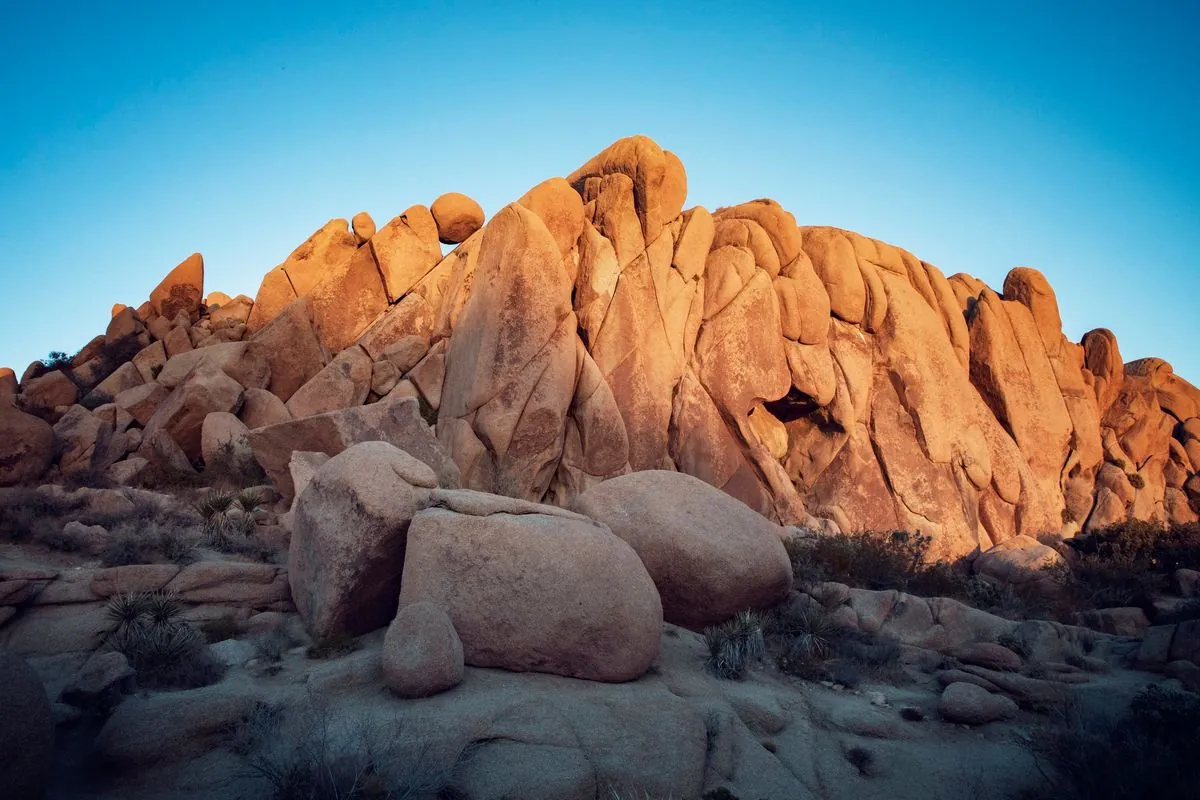In a recent incident at Joshua Tree National Park, three German tourists face legal consequences for vandalizing park property. The visitors were cited for defacing signs, bathrooms, and trash bins with paintballs, an act that occurred in early August 2024.
The park, established as a national monument in 1936 and elevated to national park status in 1994, spans an impressive 795,156 acres across two distinct desert ecosystems. Known for its unique Joshua trees and ancient rock formations, it attracts millions of visitors annually seeking to experience its natural beauty and diverse wildlife.
Park authorities discovered the damage on July 28, 2024, when a ranger on patrol at Jumbo Rocks Campground noticed fresh yellow paintball splatter. The subsequent investigation led to the discovery of paintball equipment in the tourists' vehicle, including slingshots, a paintball gun, and paintballs.
Jeff Filosa, Joshua Tree National Park's acting chief ranger, emphasized the seriousness of the offense:
"Defacing or altering the NPS landscape, no matter how small, is against the law. It diminishes the natural environment that millions of people travel the world to enjoy. The park is regularly tasked with removing graffiti of all types, using time and resources that could be better dedicated to other priorities."
The incident has brought attention to the ongoing challenge of preserving natural environments in popular tourist destinations. Joshua Tree, which received International Dark Sky Park designation, is home to over 250 bird species and the endangered desert tortoise. It also boasts over 750 species of vascular plants and five rare desert fan palm oases.
Vandalism in national parks is not a new issue. In 2014, a woman defaced rock formations in seven national parks within a month. More recently, in 2023, Acadia National Park investigated red markings on trees and rocks, while in spring 2022, Yosemite National Park discovered over 30 sites vandalized with blue and white graffiti.
The German tourists now face potential fines of up to $5,000 and a maximum of six months in prison. This incident serves as a reminder that seemingly harmless actions can have serious consequences and detract from the natural beauty that attracts visitors from around the world.
National parks like Joshua Tree are not just tourist attractions but also important conservation areas. They protect diverse ecosystems, preserve geological wonders, and safeguard cultural heritage sites. For instance, Joshua Tree contains petroglyphs and pictographs left by Native American tribes, adding to its historical and cultural significance.
As part of the Mojave and Colorado Deserts Biosphere Reserve, Joshua Tree plays a crucial role in maintaining biodiversity and providing opportunities for scientific research. The park's rock formations, over 100 million years old, offer insights into Earth's geological history.
This incident underscores the importance of responsible tourism and the need for visitors to respect and protect natural environments. It also highlights the ongoing efforts of park rangers and staff to maintain these precious landscapes for future generations to enjoy.
